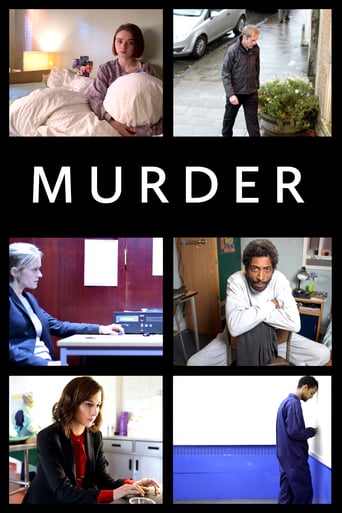altereggonyc
More melodrama than murder, with lots of overly dramatic, hand wringing soliloquies that make Macbeth and Othello seem like light comedy. The range is from dark to bleak to funereal. Just relentless. The overacting makes the reveal of whatever mystery there is seem like an afterthought. One of the scenes -- a character repeating the same few words dramatically over and over with slightly different phrasing each time -- was almost a parody of acting. I think we are supposed to ache with his sadness and loss, but the only loss I felt was that I hadn't watched something else.I had hoped this would be like The Accused, another series in which characters implicated in murder reveal how they ended up where they are. No such luck.
paul2001sw-1
A monologue, as a form of dramatic exposition, is all about the reveal: someone tells you their story, in a way that seems natural, but the twist is in the telling: as the story is told, so the narrator's perspective on what they have to say changes, and the message of the story is not that they might have been intending to pass on. Of course, first person novels sometimes work like this as well. But in the televisual form, something is lost in the format - the ability to show, rather than tell - so to be justified, there has to be something gained in the telling. 'Murder' doesn't quite take the form of a pure monologue: instead, each episode consists of the interspersed monologues of a number of characters, all involved in an act of killing. There's minimal dramatic reconstruction around the storytelling. It's an unusual approach, but it works: the writing, acting and understated direction is all well done. It's a bit formal, yet one can actually end up empathising with those involved, even with those who are eventually revealed to have actually done the deed. If all television was like this, I guess it would quickly grow boring; as it is, it's a pleasantly grown-up and intelligent drama, and one that rewards the attention of its audience.



